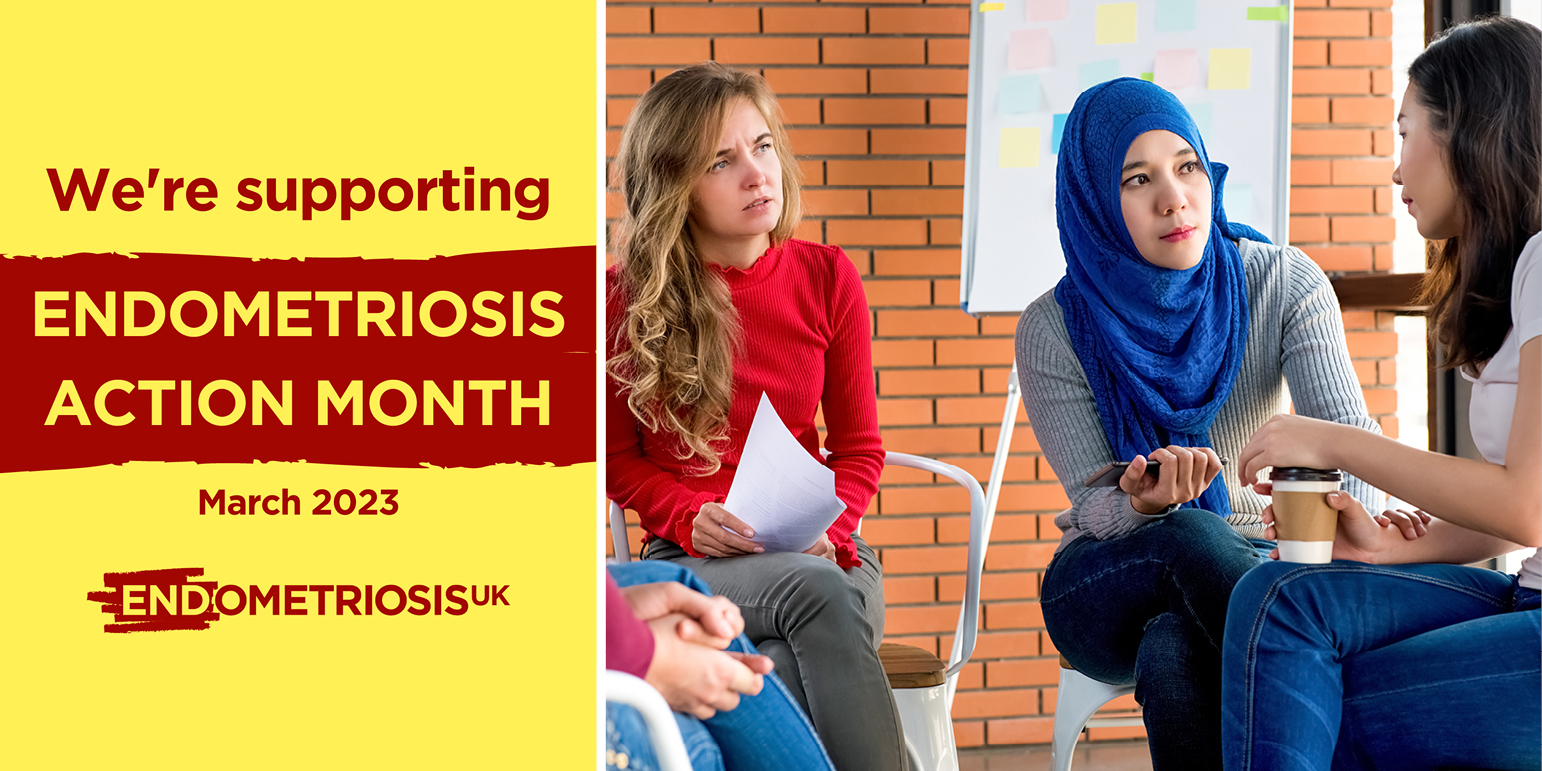April Sale - up to 25% off training courses – use code: APRIL25USA
1 March 2023
We’re supporting Endometriosis Action Month – March 2023
According to the charity Endometriosis UK, around 1.5 million women and those assigned female at birth, of any race or ethnicity, are living with the condition in the UK. Which, put another way, equat...

According to the charity Endometriosis UK, around 1.5 million women and those assigned female at birth, of any race or ethnicity, are living with the condition in the UK. Which, put another way, equates to approximately 1 in 10 women.
What is Endometriosis?
Endometriosis is a condition where cells similar to the lining of the womb (uterus) or endometrium grow in other places outside of the womb. Endometrial tissue can grow around the ovaries and fallopian tubes, but for some women it can grow around the bowel, rectum and bladder. The condition can affect women from puberty to menopause, but the impacts could be lifelong.
What happens each month?
As the Endometrial tissue is similar to the lining of the womb (uterus), the cells also react to the menstrual cycle each month and therefore bleed. But because the tissue is not located in the womb (uterus) it has no way to leave the body, and causes inflammation, pain and scar tissue forms.
It can therefore have a huge impact on someone’s life, and some common symptoms listed by the NHS are:
- Pain in your lower tummy or back (pelvic pain) – usually worse during your period
- Period pain that stops you doing your normal activities
- Pain during or after sex
- Pain when going to the loo during your period
- Feeling sick, constipation, diarrhoea, or blood in your pee or poo during your period
- Difficulty getting pregnant
Some women may also have heavy periods, which means they need to use multiple methods of sanitary products and could bleed through to their clothes.
Endometriosis Action Month – March 2023
According to this article ‘How did Endo Awareness Month Begin? Five Fast Facts’ Mary Lou Ballweg, president, executive director and founder of The Endometriosis Association, along with seven other women, initially founded Endometriosis Awareness Week in 1993. But quite soon after, they realised a week was not long enough for global activities to take place so expanded it to a month!
Now, every March, people around the world show their support for anyone affected by the condition, which the World Health Organisation highlighted affects approximately ‘10% (190 million) of reproductive age women and girls globally’.
How to get involved?
Endometriosis UK has outlined a number of ways that people can do to get involved with Endometriosis Action Month, including:
- Sharing you story
- Raising funds and creating awareness
- Writing to an MP / MSP / MS / MLA
- Attending an event, which includes virtual panel discussions with politicians and guest speakers in Westminster, Scotland and Wales and joining one of two Worldwide Endo Marches
- Joining a weekly webinar, including the first in a series of Workplace Menstrual Wellbeing webinars called ‘Endometriosis and Work.’
Why is it important to ILX to raise awareness of Endometriosis, The Menopause and other conditions that affect women?
At ILX we've been doing a lot of work on diversity, equality and inclusion (DE&I), as we want our team to be able to be their authentic selves in the workplace!
This includes improving our existing DE&I policy, developing a more comprehensive strategy for the future and running regular company-wide surveys to understand the demographic of our business – which revealed that 47.5% of our workforce identify as women.
It is therefore very important for us to understand how we can support women in the workplace with the conditions and issues they may face, and raise awareness of this with other organisations.
This is why we also published a blog last year called ‘The need for more support at work for women going through the menopause’. And ran a webinar called ‘Supporting female colleagues with the menopause: moving from policy document to behavioural change’ in April 2022, which can you watch on demand on our YouTube channel.
You can also find out more about our DE&I group here.